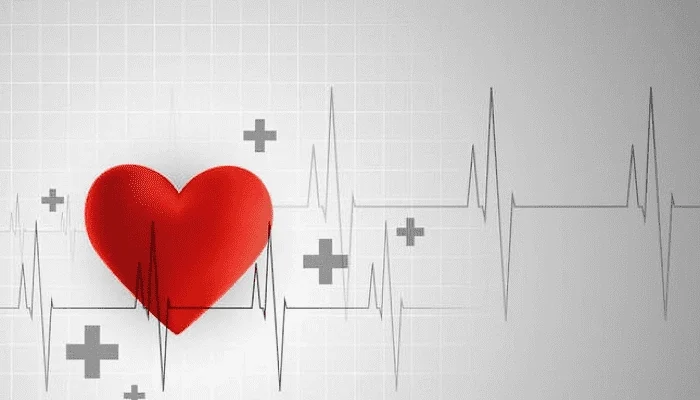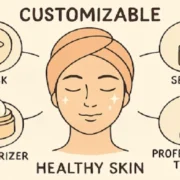Heart disease remains one of the leading causes of death worldwide. From young adults to seniors, everyone is at risk. That’s why understanding how to take better care of your heart can significantly improve your overall health and extend your life expectancy.
This listicle aims to provide you with practical and straightforward heartcare practices that you can incorporate into your daily life. By the end of this article you will have actionable steps to enhance your heart health and reduce the risk of cardiology cases.
Eat a Balanced Diet
A well balanced meal is very important for keeping your heart healthy. Foods rich in fruits, vegetables, whole grains and lean proteins should be staples in your meals.
For example the Mediterranean diet is often recommended by health care professionals. This is because it includes the elements mentioned above.
Common Mediterranean foods include olive oil, fish, nuts, beans and fresh produce. People who eat these things are less likely to get heart disease. They lower cholesterol levels and improve blood flow.
Eat less of anything that has added sugar, trans fats or saturated fats. These can lead to high cholesterol and obesity. They can increase the likelihood of developing a medical condition related to the heart.
Incorporate Fiber Into Your Diet
Fiber is an essential nutrient for heart health.It helps keep blood pressure in a safe range and lowers cholesterol. Foods high in fiber include whole grains, fruits, vegetables, nuts and legumes.
Make sure you incorporate a good amount of fiber into your daily diet. You can start by adding more fruits and vegetables to your meals or switching to whole grain options instead of refined ones.
Limit Sugar Intake
Excessive sugar consumption can lead to obesity, diabetes and heart disease risk. Limit your intake of added sugars from processed foods and sweetened beverages.
Instead opt for natural sources of sweetness such as fruit and honey. You can also try reducing the amount of sugar you add to your coffee or tea gradually.
Remember to always read food labels and be mindful of hidden sources of added sugars in products.
Exercise Regularly
Regular physical activity is essential for heart care. Exercise helps to improve blood circulation, lower blood pressure and reduce harmful cholesterol levels.
At least 150 minutes of moderate to intense movement or 75 minutes of vigorous exercise should be done every week. Exercises like swimming, cycling and brisk walking are great choices.
Even if you have a busy schedule try incorporating small bursts of activity into your day. Take the stairs instead of the elevator. Or you can also walk during your lunch break.
Small things can add up and make a significant difference in your heart health.
Quit Smoking
Smoking is one of the major risk factors for heart disease. It damages the lining of your arteries. It also leads to a build up of fatty material that can cause a heart attack or stroke. Quitting smoking can improve your health.
According to the American Heart Association, your heart health begins to improve just 20 minutes after your last cigarette. The chance of developing heart disease decreases after a year of cessation. Speak to your health care provider for support and resources to help you quit smoking.
If you feel that it’s difficult to quit smoking, don’t rush yourself. You can tap into the various programs counseling sessions and support groups available to you. It’s never too late to quit!
Manage Your Stress Levels
Heart disease can be caused by long term worry. Stress can make your blood pressure go up and make you do bad things to deal with it like smoking or eating too much.
So make sure you learn to cope with stress in healthy ways. Try out yoga, meditation or deep breathing exercises. You’ll feel better and less worried if you do these things.
Yoga can improve flexibility, muscle strength and heart health. On the other hand meditation and deep breathing techniques can calm the mind, lower blood pressure and reduce stress hormones.
You can also find other activities that you enjoy and help reduce stress. You can spend time with loved ones, listen to music or engage in your hobbies.
Monitor Your Blood Pressure
High blood pressure or hypertension, is a silent killer because it often shows no symptoms but can lead to severe cardiology cases. Regular monitoring of your blood pressure can help you keep it in check.
You can easily and generally find home blood pressure monitors. Maintain a record of your readings and discuss them with your healthcare provider.
Your healthcare provider will be able to advise you on how to manage your blood pressure if it is consistently high. This may include lifestyle changes or medication.
Limit Alcohol Consumption
Drinking alcohol in excess can lead to high blood pressure and increase the risk of heart disease. Limit your alcohol consumption to one drink per day for women and two drinks per day for men.
If you have a history of heart disease or are at risk, it is best to avoid alcohol altogether. Remember to always drink responsibly and never mix alcohol with medication without consulting your doctor first.
You can get help from family, friends, or a professional to stop drinking.Achieving better heart health doesn’t have to be done by yourself.
Get Adequate Sleep
Sleep is very important for keeping your heart healthy. Lack of sleep can lead to high blood pressure obesity and diabetes – all risk factors for heart disease.
Every night, make sure you get at least 7 to 8 hours of good sleep. Creating a bedtime routine avoiding electronics before bed and sleeping in a dark and quiet environment can help improve your sleep.
If you’re having difficulty falling or staying asleep, speak to your doctor. They may suggest lifestyle changes or other interventions to promote better sleep habits.
For example, check with your doctor if you have sleep apnea, a common sleep disorder associated with heart disease. Your doctor may recommend using a continuous positive airway pressure (CPAP) machine while sleeping. This can help improve breathing and quality of sleep.
Maintain a Healthy Weight
The risk of heart disease can be raised by being overweight or obese. It puts added strain on your heart and increases the likelihood of high blood pressure, diabetes and other conditions.
Maintaining a healthy weight through a balanced diet and regular exercise is crucial for heart care. Speak to your doctor or a nutritionist if you need help creating a healthy eating plan.
Stay Hydrated
Staying hydrated is important for your heart’s health as a whole. Blood that is too thick can make it harder for your heart to pump when you are dehydrated.
An eight-ounce glass of water should be consumed each day. This amount can change depending on how active you are, the weather and your health in general.
Foods that are high in water like fruits and veggies can also help you meet your daily water needs. Most fruits including cucumber and watermelon are made of water.
You can also take a water bottle with you all day without getting sick. This could help you remember to drink water and make it easier to meet your daily goal.
Take Care of Your Mental Health
You should take care of both your body and mind. Mental health conditions such as depression and anxiety can have adverse effects on heart health.
Focus on taking care of yourself first and if you need to get skilled help. Don’t hesitate to talk to your doctor if you are experiencing symptoms of a mental health disorder.
It’s not just about physical health but also about finding balance and taking care of your well being as a whole. Your mental health affects your heart health too.
Know Your Family History
Sometimes it’s not about you at all. Sometimes it’s about your family.
You need to know your family medical history. Certain heart conditions can be genetic, so it’s essential to inform your healthcare provider about any family history of heart disease or other related conditions.
Your doctor may recommend additional screenings or tests based on your family medical history. This will help prevent and manage any potential heart health risks.
Regular Check-Ups
Lastly, make sure you see your doctor regularly for check-ups. Regular health screenings can help detect any potential issues early on and allow for timely intervention.
Your doctor can also advise you on the biggest sign of worsening heart failure. They will be able to spot them before they become a severe problem.
Just remember to always communicate openly with your healthcare provider. Follow their recommendations.
Medications and Supplements
For some individuals, lifestyle changes alone may not be sufficient to manage heart health risks. Medications and supplements can play a critical role. If prescribed by your healthcare provider, make sure to take medications as directed and follow up regularly to monitor your progress.
Some supplements, like omega-3 fatty acids, can also support heart health. But you should always talk to your doctor before starting a new vitamin plan.
Heartcare Is Self-Care
Caring for your heart is a form of self care. It’s not just about preventing diseases but also improving your well being and quality of life.
Incorporating these practices into your daily routine may require effort and commitment but the long term benefits are worth it. Taking care of your heart can lead to a healthier and happier you.
Revive Fitness Routine with These Proven Tips










Comments